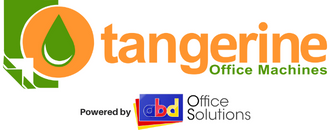Leasing a copier can be a smart decision for businesses looking to avoid high upfront costs while still accessing reliable office equipment. But is it the right choice for you? In this guide, we’ll break down the pros and cons of copier lease, key factors to consider, and tips to ensure you get the best deal for your business.
Why Businesses Choose Copier Leasing
One of the biggest reasons businesses lease copiers is financial flexibility. Instead of spending thousands upfront to buy a copier, leasing allows you to make manageable monthly payments. This is especially beneficial for startups and growing businesses that need to allocate capital to other areas.
Another advantage is access to the latest technology. Copier leases often include upgrade options, ensuring you always have a machine that meets your needs without worrying about obsolescence. Additionally, most leases come with service contracts that cover maintenance and repairs, minimizing downtime and unexpected costs.
The Long-Term Costs of Leasing
While leasing offers financial flexibility, it can be more expensive in the long run. Over several years, lease payments may add up to more than the cost of purchasing a copier outright. Businesses with high-volume printing needs over an extended period may find buying a copier with a strong service agreement to be more cost-effective.
Understanding Lease Agreements
Before signing a lease, it’s important to understand the terms. Many leases charge per copy and may include monthly minimums. Underestimating your print volume could lead to costly overages, while overestimating could mean paying for copies you don’t use.
Also, clarify what’s included in the service agreement. Some contracts cover all necessary repairs and parts, while others may exclude components that wear out over time. Ensure you get a detailed list of what’s covered to avoid unexpected expenses.
Consumables and Emergency Repairs
Standard lease agreements typically do not include consumables like paper and toner. Some providers offer all-inclusive leases that do, but these may not always be cost-effective. It’s usually better to purchase these supplies separately from office supply stores.
Additionally, ask about emergency repair response times. Many leases include a four-hour response time guarantee, but coverage for evenings and weekends varies. If copier downtime could disrupt your business operations, ensure your lease includes timely support and possible loaner equipment.
Tips for Leasing the Right Copier
- Assess Your Needs – Determine your monthly print volume and required features to avoid overpaying for unnecessary capabilities.
- Compare Leasing Options – Don’t settle for the first offer. Compare lease rates and terms from multiple vendors.
- Consider the Brand and Model – Features matter more than the brand, but if leasing multiple copiers, sticking with one brand can simplify maintenance.
- Test Before You Commit – Ask for a demo to ensure the copier meets your expectations before signing a lease.
- Protect Your Data – Copiers store data on internal drives. Ensure your provider securely wipes all data before returning a leased copier.
Conclusion
Leasing a copier can be a great option for businesses that need high-quality office equipment without a large upfront investment. However, understanding the lease terms, costs, and service agreements is crucial to making the right decision. If you’re considering a copier lease, Tangerine Office Machines can help you find the perfect solution tailored to your business needs. Contact us today to explore your options!

